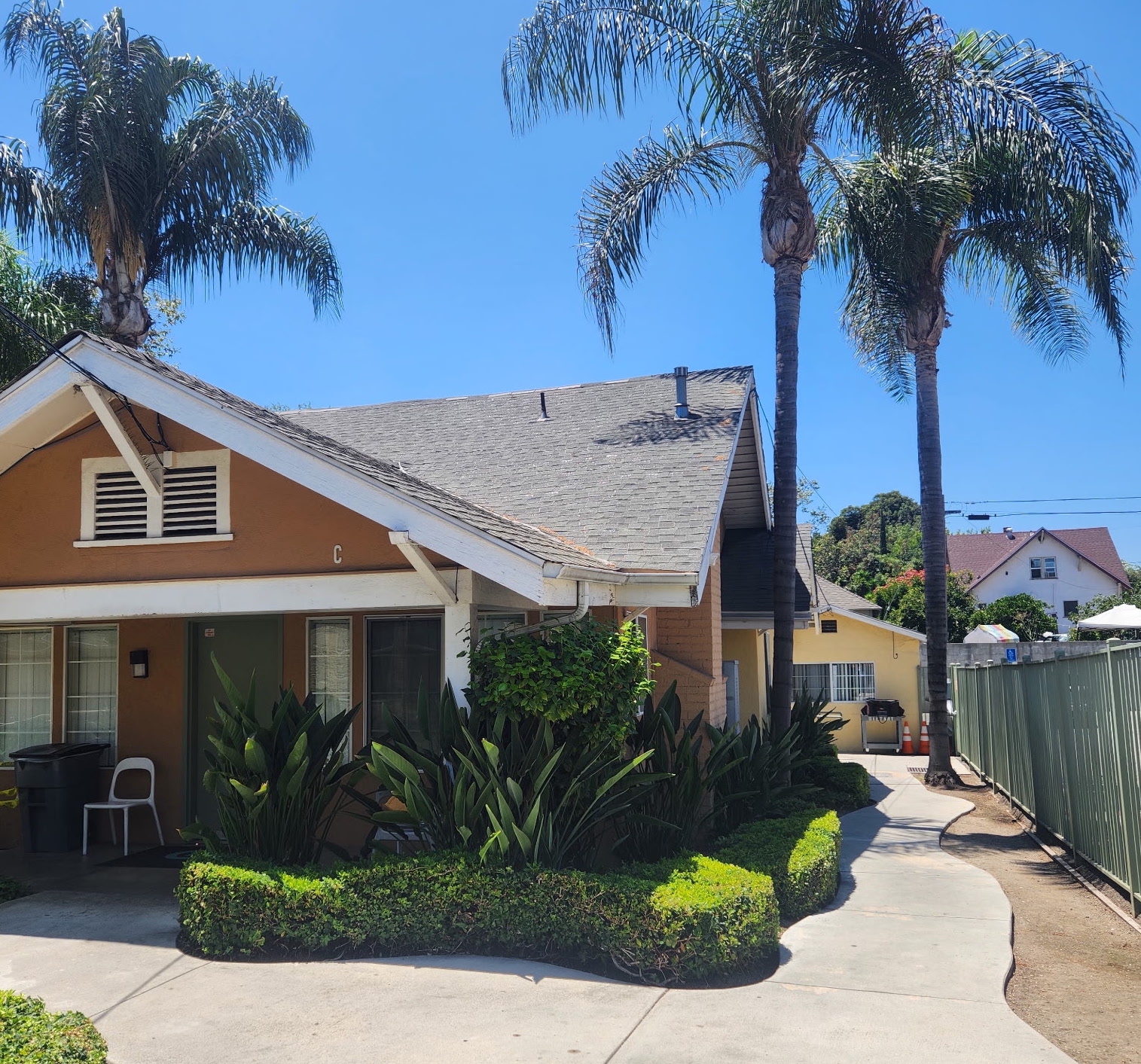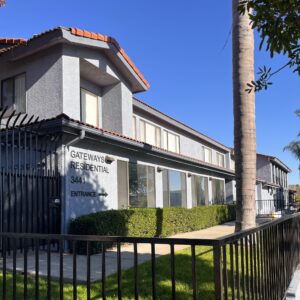
Residential Programs
Recovery from mental and behavioral health issues requires a structured, supportive environment. Gateways’ residential services are designed to provide a safe and nurturing space for adults ages 18-59 transitioning from inpatient care or requiring a higher level of support than outpatient services.
Gateways’ residential programs provide a continuum of care, offering individualized treatment plans, round-the-clock support, and a therapeutic community that fosters stability and growth. These services are essential at every stage, with the residential program bridging the gap between acute care and independent living.
Residential services focus on gradual reintegration into the community, offering tailored support to each client’s unique timeline for transitioning to less restrictive living arrangements. This approach ensures a holistic pathway to recovery, guiding clients from residential care to transitional housing and, ultimately, to independent living. With the skills and confidence gained during their stay, clients are empowered to thrive in their next chapter.
Our Approach to Care
Key Features
- Immediate mental health support for crisis stabilization
- Collaborative care approach involving a personalized discharge plan
- Comprehensive treatment plans designed to stabilize psychiatric symptoms, decrease functional impairments, and increase opportunities for community integration.
- Structured daily routines promote stability and consistency.
- A licensed residential facility providing intensive mental health care.
- Focused on skill-building, personal growth, and independence.
Clients
Gateways’ residential programs serve a diverse population of adults, including those who:
- Are transitioning from inpatient psychiatric hospitalization
- Require a structured and supportive living environment to maintain their mental health
- Have a history of placement failures or psychiatric instability
- Are working towards greater independence and community integration
Core Services
- Safe and Comfortable Housing: A comfortable and secure living environment where residents can focus on their recovery without the added stress of finding safe and stable housing.
- Medication Management: A team of psychiatrists, nurse practitioners and nurses provides comprehensive medication management services, including medication education, monitoring, and adjustments as needed.
- Individual and Group Therapy: A variety of evidence-based therapies to address a wide range of mental health conditions, including individual therapy, group therapy, and family therapy.
- Therapeutic and Recreational Activities: Person-centered care that addresses the needs of clients’ overall well-being.
- Enriched Treatment: Intensive mental health support services including individual and group therapy to address emotional and behavioral challenges, build resilience, and develop healthy coping strategies.
- Targeted Case Management: Personalized coordination of care and connection to vocational, educational, and community resources that promote long-term stability and independence.
- Life Skills Training & Community-Based Outings: Training in personal care, budgeting, social development, and money management, reinforced through supervised community outings that encourage independence and real-world application.
- Crisis Intervention: Immediate, on-site support to stabilize residents during periods of acute emotional distress or behavioral crisis.
- Treatment for Co-Occurring Substance Use Disorders: Integrated care that addresses both mental health needs and substance use disorders for comprehensive recovery.
- Community Reintegration: Collaborative planning to support residents’ transition to lower levels of care with opportunities for greater independence, including socialization opportunities and integration into the broader community.
Gateways’ three residential support programs are contracted by Los Angeles County Department of Mental Health, licensed by Community Care Licensing, and are MediCal certified.




Crisis Residential
The Crisis Residential Program (CRTP) provides immediate mental health support for individuals facing acute life crises. Designed to offer a safe space for stabilization and recovery, CRTP fosters a collaborative care approach, with mental health professionals and support staff working closely with residents. From entry through discharge, CRTP focuses on successful reintegration, offering case management, individual and group therapy, medication support, and both internal and external activities to support recovery.
Our Approach to Care
Key Features
- Immediate mental health support for crisis stabilization
- Collaborative care approach involving a personalized discharge plan
- Comprehensive treatment plans designed to stabilize psychiatric symptoms, decrease functional impairments, and increase opportunities for community integration.
- Structured daily routines promote stability and consistency.
- A licensed residential facility providing intensive mental health care.
- Focused on skill-building, personal growth, and independence.
Clients
Gateways’ residential programs serve a diverse population of adults, including those who:
- Are transitioning from inpatient psychiatric hospitalization
- Require a structured and supportive living environment to maintain their mental health
- Have a history of placement failures or psychiatric instability
- Are working towards greater independence and community integration
Core Services
- Safe and Comfortable Housing: A comfortable and secure living environment where residents can focus on their recovery without the added stress of finding safe and stable housing.
- Medication Management: A team of psychiatrists, nurse practitioners and nurses provides comprehensive medication management services, including medication education, monitoring, and adjustments as needed.
- Individual and Group Therapy: A variety of evidence-based therapies to address a wide range of mental health conditions, including individual therapy, group therapy, and family therapy.
- Therapeutic and Recreational Activities: Person-centered care that addresses the needs of clients’ overall well-being.
- Enriched Treatment: Intensive mental health support services including individual and group therapy to address emotional and behavioral challenges, build resilience, and develop healthy coping strategies.
- Targeted Case Management: Personalized coordination of care and connection to vocational, educational, and community resources that promote long-term stability and independence.
- Life Skills Training & Community-Based Outings: Training in personal care, budgeting, social development, and money management, reinforced through supervised community outings that encourage independence and real-world application.
- Crisis Intervention: Immediate, on-site support to stabilize residents during periods of acute emotional distress or behavioral crisis.
- Treatment for Co-Occurring Substance Use Disorders: Integrated care that addresses both mental health needs and substance use disorders for comprehensive recovery.
- Community Reintegration: Collaborative planning to support residents’ transition to lower levels of care with opportunities for greater independence, including socialization opportunities and integration into the broader community.
Crisis Residential Treatment Program
- Location: Border of East Hollywood & Silverlake
- Four single story cottages with outdoor space for residents
- Population: Males ages 18-59
- Capacity: 16 beds
- Average length of stay: 30 days

Gateways’ three residential support programs are contracted by Los Angeles County Department of Mental Health, licensed by Community Care Licensing, and are MediCal certified.




Enriched Residential Services Program
The Enriched Residential Services Program provides a structured and therapeutic environment to support individuals’ transition to more independent community living. Located in a secure residential setting, the program specializes in serving adults ages 18–59. Residents receive integrated mental health and housing services delivered by a multidisciplinary team of psychiatrists, nurses, psychologists, therapists, case managers, housing specialists, peer support staff, and substance use counselors.
Our Approach to Care
Key Features
- Immediate mental health support for crisis stabilization
- Collaborative care approach involving a personalized discharge plan
- Comprehensive treatment plans designed to stabilize psychiatric symptoms, decrease functional impairments, and increase opportunities for community integration.
- Structured daily routines promote stability and consistency.
- A licensed residential facility providing intensive mental health care.
- Focused on skill-building, personal growth, and independence.
Clients
Gateways’ residential programs serve a diverse population of adults, including those who:
- Are transitioning from inpatient psychiatric hospitalization
- Require a structured and supportive living environment to maintain their mental health
- Have a history of placement failures or psychiatric instability
- Are working towards greater independence and community integration
Core Services
- Safe and Comfortable Housing: A comfortable and secure living environment where residents can focus on their recovery without the added stress of finding safe and stable housing.
- Medication Management: A team of psychiatrists, nurse practitioners and nurses provides comprehensive medication management services, including medication education, monitoring, and adjustments as needed.
- Individual and Group Therapy: A variety of evidence-based therapies to address a wide range of mental health conditions, including individual therapy, group therapy, and family therapy.
- Therapeutic and Recreational Activities: Person-centered care that addresses the needs of clients’ overall well-being.
- Enriched Treatment: Intensive mental health support services including individual and group therapy to address emotional and behavioral challenges, build resilience, and develop healthy coping strategies.
- Targeted Case Management: Personalized coordination of care and connection to vocational, educational, and community resources that promote long-term stability and independence.
- Life Skills Training & Community-Based Outings: Training in personal care, budgeting, social development, and money management, reinforced through supervised community outings that encourage independence and real-world application.
- Crisis Intervention: Immediate, on-site support to stabilize residents during periods of acute emotional distress or behavioral crisis.
- Treatment for Co-Occurring Substance Use Disorders: Integrated care that addresses both mental health needs and substance use disorders for comprehensive recovery.
- Community Reintegration: Collaborative planning to support residents’ transition to lower levels of care with opportunities for greater independence, including socialization opportunities and integration into the broader community.
Percy Village Enriched Residential Services Program
- Location: Boyle Heights
- Two-story building with 3 outdoor patios for residents
- Population: Males and females ages 18-59
- Capacity: 136 beds
- Average length of stay: 3-9 months
Normandie Village Enriched Residential Services Program
- Location: Downtown Los Angeles
- Three-story brownstone with outdoor space for residents
- Population: Males ages 18-59
- Capacity: 58 beds
- Average length of stay: 3-9 months


Gateways’ three residential support programs are contracted by Los Angeles County Department of Mental Health, licensed by Community Care Licensing, and are MediCal certified.



